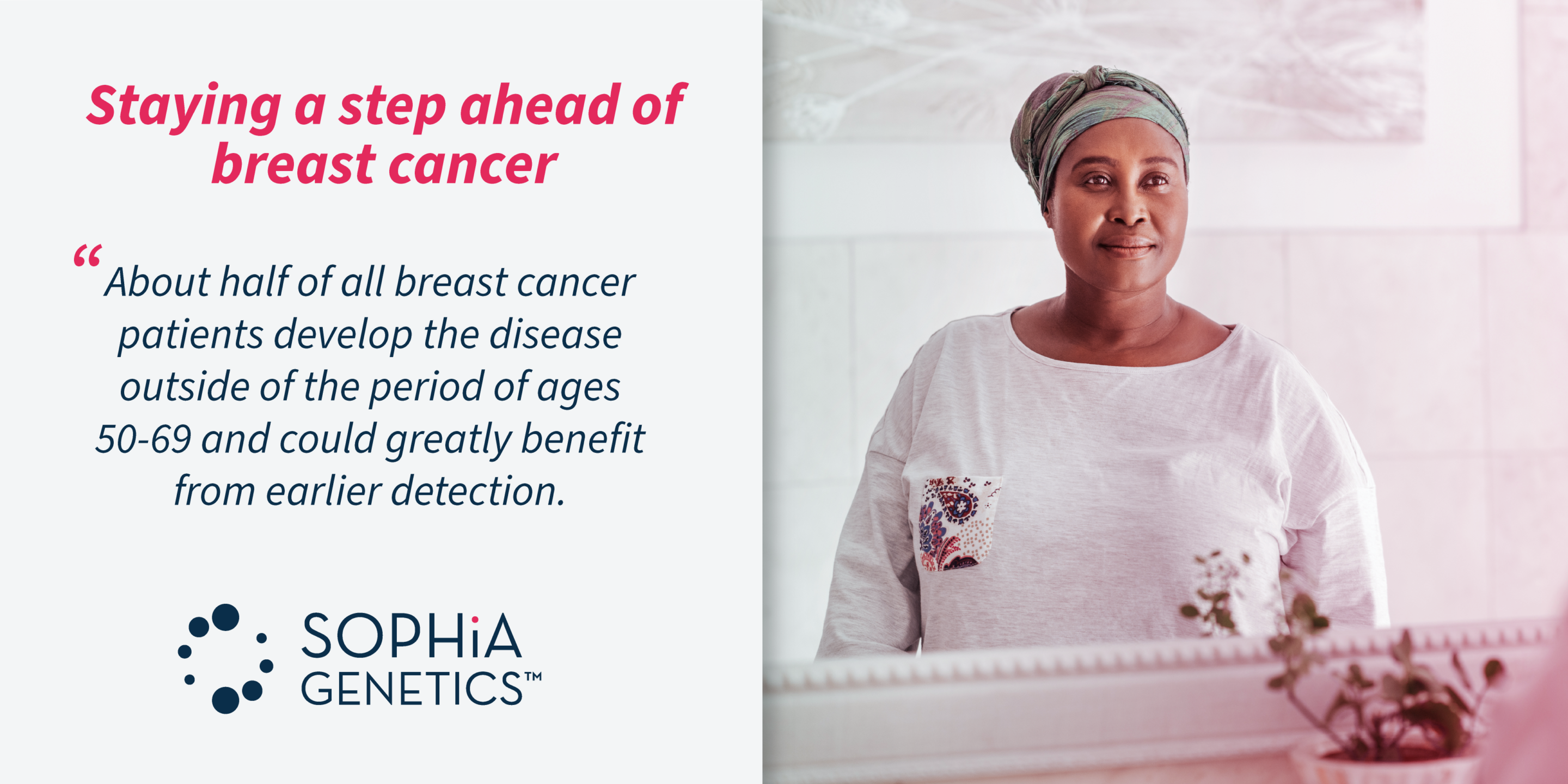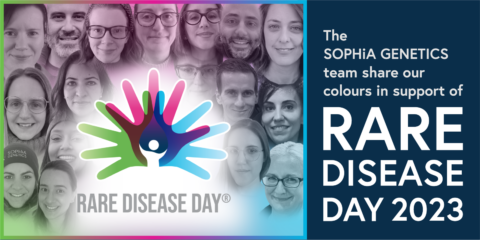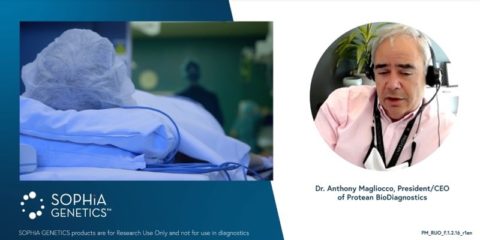Undergoing a double mastectomy as a preventative measure can be a very difficult and personal decision. It was one that the whole world experienced with Oscar-winning actress Angelina Jolie when she quite publicly made her decision known in 2015. Through genetic testing, Jolie discovered she was predisposed to developing breast cancer, just like her mother and aunt. This clinical test gave her a new level of awareness about her health and changed her life forever. In this case, the doctor was in the position to provide her with preventive measures. However, Angelina Jolie is not an isolated case.
Women with close relatives who have been diagnosed with breast cancer are at a higher risk of developing the disease, and about 5-10% of breast cancer cases are thought to be hereditary. For those patients at increased risk of developing the disease, a comprehensive test for detecting mutations on BRCA1/2 and other well-known genes linked to breast cancer is crucial and will determine risk level. But most women are uninformed as to whether they are at risk for developing breast cancer.
The vast majority (90-95%) of breast cancer cases arise in women with no apparent close family history, making it more difficult to assess if they should be tested or not. This means there is an opportunity to improve the ways that they can learn about their predisposition. Thanks to technological advances and innovative data-driven medicine approaches, risk assessment measures now exist for all women. Through a simple test, the evaluation of the risk—a person’s predisposition to develop breast cancer—can be researched within a few weeks. In addition to Breast Cancer, many other hereditary cancers can be further analyzed.
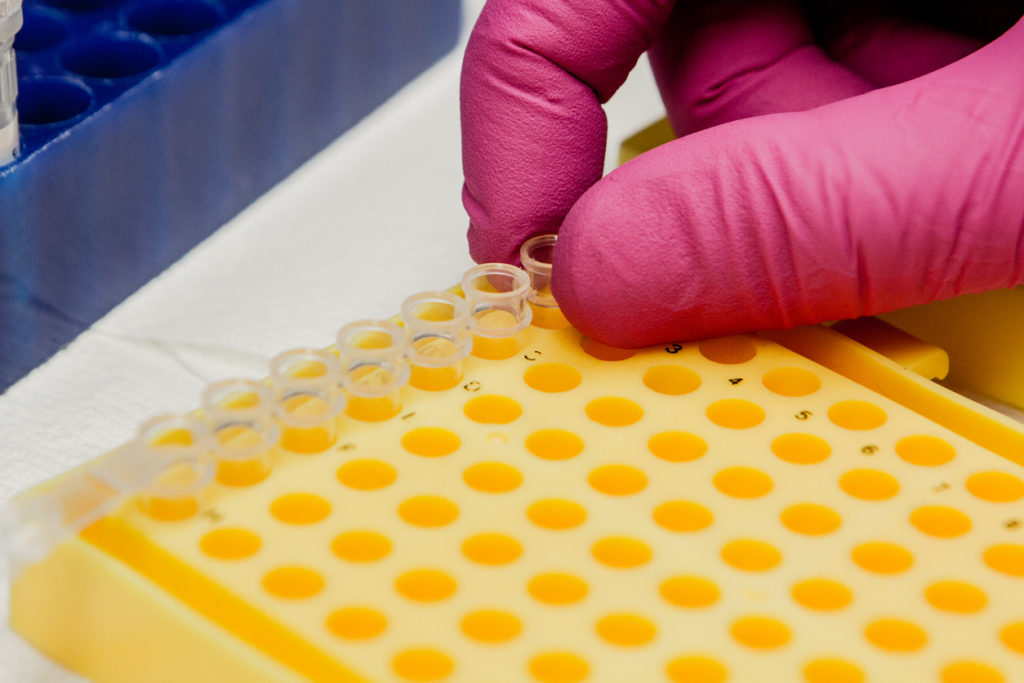
Empowering informed decision-making
SOPHiA GENETICS is listed amongst the 50 smartest companies worldwide by the MIT Tech Review. Our mission is to democratize data-driven medicine globally. The company is already working with more than 780 healthcare institutions in 72 countries. Our AI-based platform, SOPHiA DDMTM, is already used to help healthcare professionals better detect and understand genomic predisposition of developing cancer even faster. Through an innovative multi-data source approach, SOPHiA GENETICS helps experts make sense of clinical research data, empowering more informed decision-making.
SOPHiA GENETICS developed a robust genomic application that analyzes the most frequently mutated genes starting from a blood sample. The presence of inherited mutations in these genes implies an increased risk of developing breast cancer. A positive result, however, doesn’t mean they will ultimately develop cancer. Follow-up care after a positive test result might include taking specific measures to modify the type and frequency of screening and define the appropriate preventive strategy. This depends on many factors including age, medical history, prior treatments, past surgeries, and personal preferences.
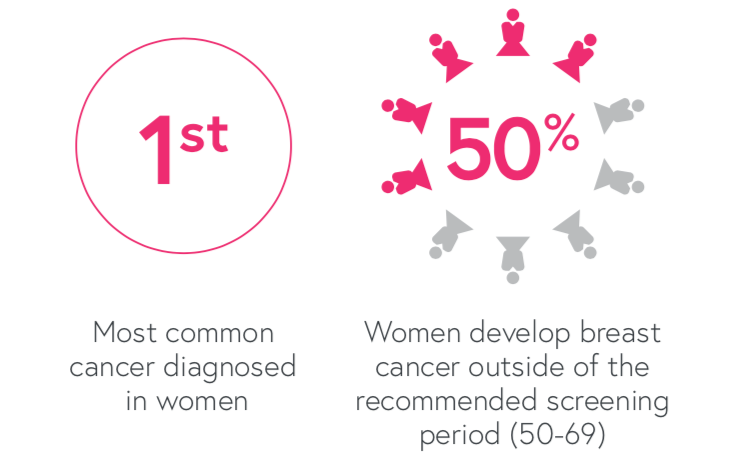
Women who don’t carry an inherited mutation rely exclusively on mammogram screenings as their preventive measure. Mammograms are often recommended to women around the age of 50, and participation rates in mammography screening programs are low. Women shouldn’t have to wait until then to know if they’re at risk for developing breast cancer. In fact, about half of all breast cancer patients develop the disease outside of the period of ages 50-69 and could greatly benefit from earlier detection. Today, we know that age alone is not enough to accurately estimate breast cancer risk.
Better screening—for everyone
Men can also be at risk for breast cancer. Examinations for men are often uncommon unless there’s apparent reason to screen. It’s important that men are just as knowledgeable about their genomic profiles as women. Recent studies have shown that men with BRCA mutations may have eight times as many cancers than what would be expected in the general population. Luckily, genomic profiling options offered by SOPHiA GENETICS can detect BRCA and many other gene mutations (variants) that give experts further insight into cancer research.
The path to your personal care starts with preventative measures that go beyond traditional means. Thanks to new technologies propelling data-driven medicine, a new era of preventative care could help clinical researchers stay a step ahead of cancer.
CLICK HERE TO GET IN TOUCH WITH ONE OF OUR EXPERTS TODAY
*This article was originally published in the Boston Globe as part of their annual Breast Cancer Awareness special coverage
